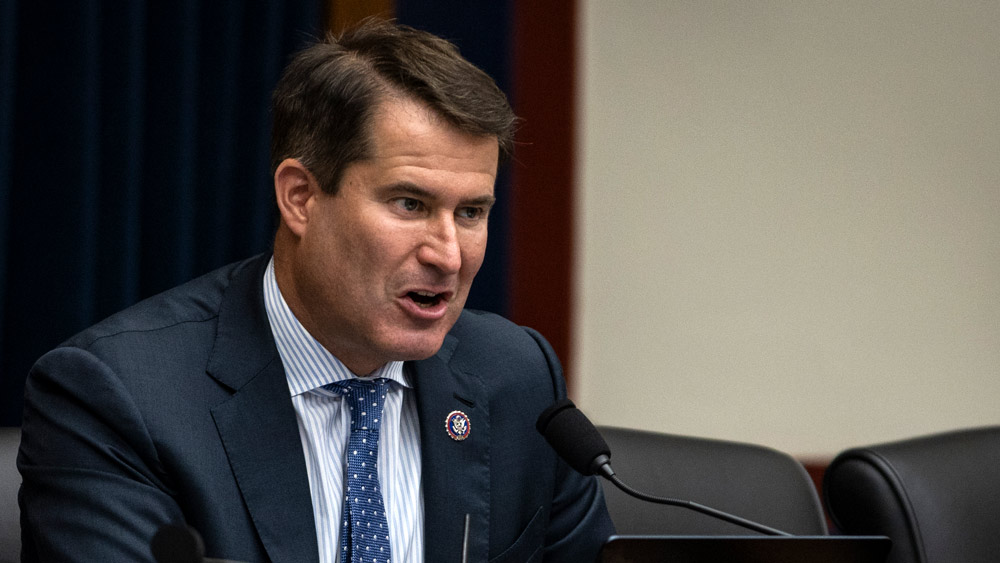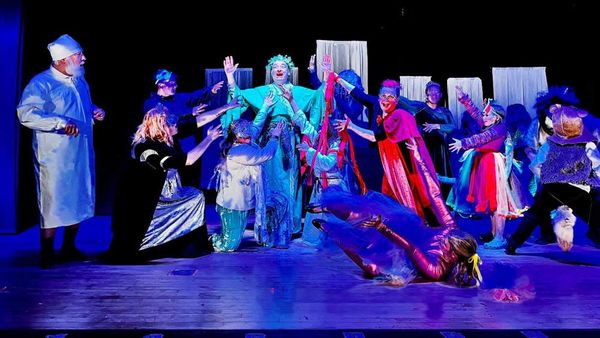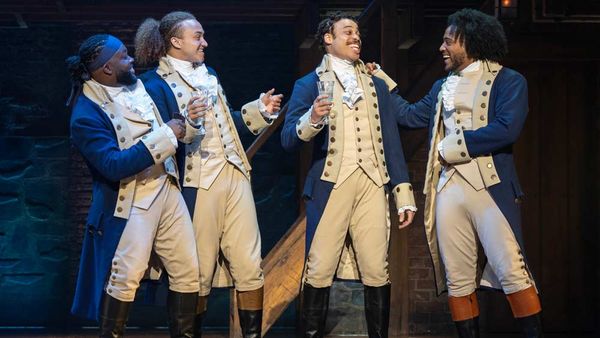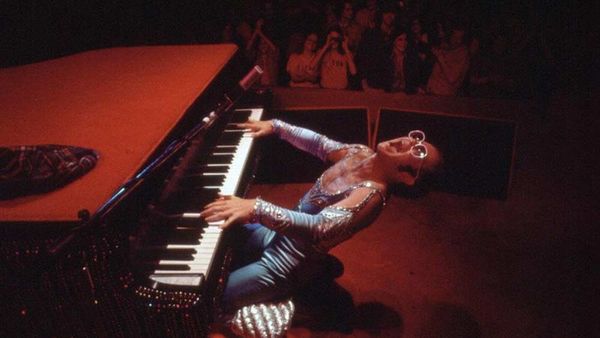May 4, 2011
Antony and Cleopatra
Kilian Melloy READ TIME: 4 MIN.
The Actors' Shakespeare Project finishes a bold season with a production of "Antony and Cleopatra" that, with director Adrianne Krstansky at the helm, examines the story of tragic lovers in the ancient world through the lens of modern celebrity.
Not that Mark Antony, as a famed Roman general and one of three Roman rulers who came to power after the assassination of Julius Caesar, and Cleopatra, a female pharaoh--and, as it happened, the last pharaoh--of Egypt would not have been celebrities, in a sense, in their own day. But were they celebrated? Or were they venerated? The latter carries a healthy dose of fear, whereas the former can perhaps best be understood, in this context, as an amalgam of envy and lust.
Rulers in the ancient world were godlike--or, in the case Cleopatra, gods: Cleopatra declared herself to be the earthly embodiment of Isis, the Egyptian goddess of, among other things, fertility.
It's in that fertile, feminine mode that Cleopatra is often seen and interpreted. A canny seductress, a sophisticated sexpot--from Elizabeth Taylor in the famously extravagant film to Lyndsey Marshal in the equally expensively produced HBO television series "Rome," Cleopatra has been all woman--all the time.
So too Paula Plum's portrayal, though here Cleopatra has a brasher edge. She's still dangerous and smart, but Plum's Cleopatra carries a modern sensibility--she's as much a hustler as a seducer, and she's as perfectly at home wielding title and power as any 21st century female head of state--or, for that matter, any male head of state from pretty much any era.
This is the Cleopatra of Shakespeare's text, if read in a certain manner, and the performers of the ASP are nothing if not fluently conversant in the language of the Bard. They're so good at rendering Shakespeare that even as they speak in the highly textured and ornamented language of the plays, they are as clear in their meaning as though speaking American vernacular.
The same might be said for the other production elements. The company's lighting has always been one of the more interesting and consistently ingenious parts of the ASP's shows, owing in large part to the itinerant nature of the troupe. The ASP has performed in cozy confines such as the space it used earlier this year in Davis Square, or last season at The Garage in Harvard Square; they have also made use of space at Midway Studios in Fort Point Channel, at the Hibernian Hall in Roxbury, and at The Cathedral Church of St. Paul in the South End, among other interesting venues.
The fact that this production has found a home in the splendidly renovated Modern Theatre--where they not only enjoy a traditional stage complete with plush red curtain, but a fully equipped lighting rig--diminishes Jeff Adelberg's imaginative approach not one bit. (Though there are moments--scenes set in Rome--when the play literally dazzles: Two banks of fluorescent lights descend and flare to brilliance with such shocking quickness that some in the audience winced or shielded their eyes. It is not necessarily pleasant--but it is effective.)
Adelberg's lighting fits in well with the box-spring-dominated set design, characterized by the naked metal filigrees of beds stripped right down to their skeletons--a commentary, perhaps, on the sexual fascination that the cult of celebrity exerts over its adherence, or perhaps a visual metaphor for the confines of a doomed romantic relationship.
The play's thesis of celebrity is underscored by several "night club" settings, when dance music thumps and the players--Antony, Octavius (Doug Lockwood), and their retainers--cavort. (Who would have thought that Roman Imperial fashion would look so at home on the dance floor?) Composer and sound designer David Remedios rises to the occasion here, providing us with all the sonic drive we need.
James Andreassi plays Antony with a certain sense of sexual decadence and a general almost-indifference. He consents to marry Octavius' sister, Octavia (Giselle Ty) out of practical necessity, because he would rather keep the peace with--and within--Rome. But he doesn't scruple a whit to return to Cleopatra's arms as soon as he can, and when the time for war against his countrymen comes he's just as detached, deciding to wage war on the water rather than on land, where his military genius is unquestioned. The battle goes badly; perhaps, in his exhausted, almost stunned, dissipation, the outcome would have been the same no matter where Antony chose to engage the Roman forces.
Where Paula Plum appears, one wishes to look for Richard Snee, and he's here in the role of Enobarbus, Antony's aide, who offers his unvarnished thoughts but goes unheeded. Snee is effective both as comic foil and as Greek chorus; his Enobarbus is dignified, but knows how to prompt a laugh.
The ASP has, from time to time, resorted to black shirts and trousers, making the characters look like riot police or fascists. Here, costumer Anna-Alisa Belous outfits the men in handsome military regalia--they look like proper Romans!--and the women in gowns that can create a look of diaphanous beauty or, in some instances, help impart a frowsy, harridan-ish impression--this is Cleopatra at her most demanding and insecure, which is to say, in her most dangerous moments.
The overall look of the production fits well with the venue--both follow a handsome classical mode but also avoid seeming dated. The production and venue, taken as a whole, are a suitable close to a season that started off with the rousing repertory presentation of both parts of "Henry IV," under the omnibus title "The Coveted Crown," continued with the sweetness and light of "Cymbelene," and included two non-Shakespearean works, John Kuntz's new play "The Hotel Nepenthe" and Jon Lipsky's "Living in Exile," and a promising prelude to next season's four-play program, set to include "Twelfth Night," "Merry Wives of Windsor," "Troilus and Cressida," and Euripides' "Medea."
Kilian Melloy serves as EDGE Media Network's Associate Arts Editor and Staff Contributor. His professional memberships include the National Lesbian & Gay Journalists Association, the Boston Online Film Critics Association, The Gay and Lesbian Entertainment Critics Association, and the Boston Theater Critics Association's Elliot Norton Awards Committee.





